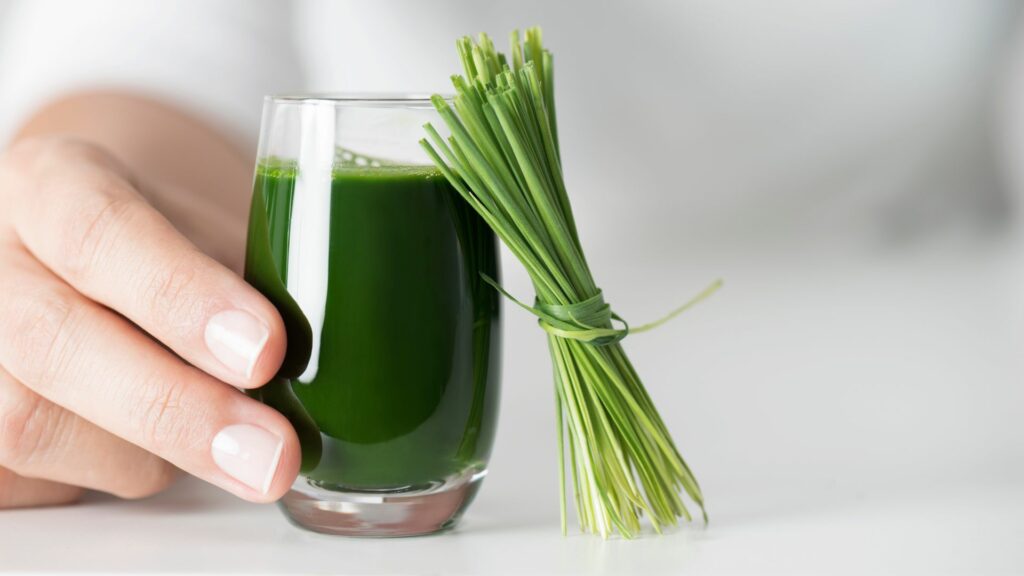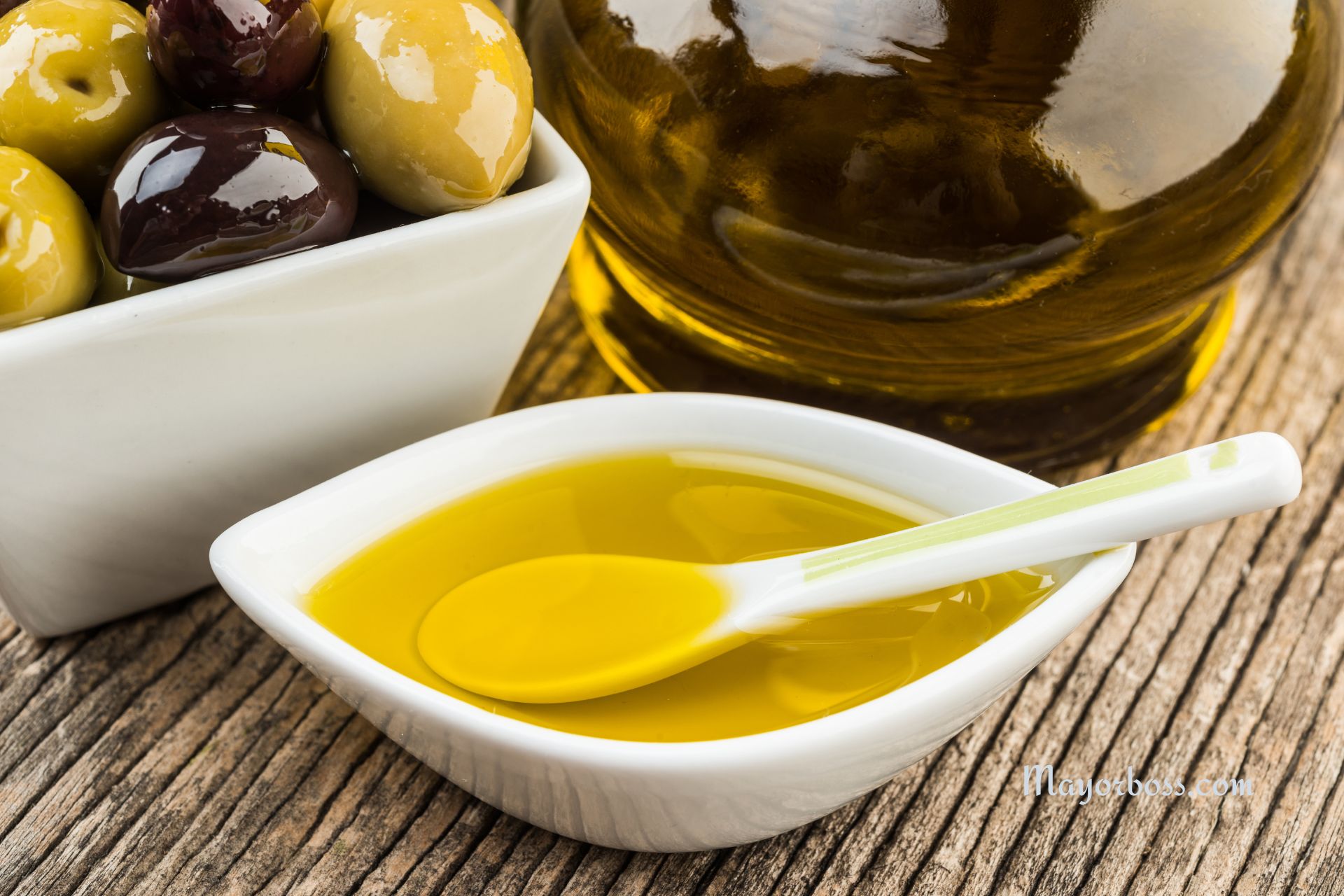Benefits of Wheatgrass
Research suggests that regular consumption of wheatgrass may boost energy levels, aid digestion, lower blood sugar, improve liver function, and promote detoxification. It has also been linked to other health benefits, though more research is needed.
What is Wheatgrass?
Wheatgrass (Triticum aestivum) is a type of grass that has been used as a dietary supplement, food, or drink due to its nutritional content. It is considered to be a superfood. That is because it is high in many vitamins and minerals, including Vitamin A, calcium, zinc, iron, and magnesium. Wheatgrass can be consumed either in fresh juice or powder form.
Health Benefits of Wheatgrass

1. Rich In Nutrients
Wheatgrass contains more than 90 essential minerals, including calcium, potassium, magnesium, zinc, chromium, and selenium – just to name a few! It is also a good source of vitamins A, B6, C, E, and K. Apart from these nutrients; wheatgrass is loaded with amino acids and antioxidants like beta-carotene, lutein, and zeaxanthin—all important for a healthy diet!
2. It has Anti-inflammatory Properties
Inflammation can cause a range of conditions and diseases. Wheatgrass has natural anti-inflammatory properties that may help reduce inflammation in the body. It is especially beneficial for those suffering from arthritis, asthma, and joint pain.
3. Boosts Energy Levels
Wheatgrass contains chlorophyll, an important nutrient that is responsible for providing energy to the body and helps combat fatigue. Studies have shown that taking wheatgrass juice can help increase energy levels and reduce feelings of tiredness. Additionally, it can provide an energy boost after exercise or other strenuous activities by helping replenish lost electrolytes quickly due to its large mineral content.
4. Detoxifies and Cleanses the Body
One of the major benefits of wheatgrass is its ability to act as a detoxifier by helping to flush out toxins from the body. Thanks to its high concentration of chlorophyll, wheatgrass may reduce and eliminate toxins like heavy metals while also aiding in liver cleansing.
5. Aids Digestion
Wheatgrass helps improve digestion by aiding enzyme production within your gut. This can help break down foods more efficiently, so you absorb more nutrients from what you eat. Drinking wheatgrass juice may reduce symptoms associated with indigestion, such as bloating, gas, and constipation.
6. Fights Infections
Some scientific evidence suggests that chlorophyll is present in wheatgrass and aids in fighting and preventing the growth of harmful bacteria and viruses in the body. It’s believed that chlorophyll has antimicrobial and antiviral properties that may help boost the immune system and protect against infections.
7. May Enhances Skin Health
Another potential benefit of wheatgrass is its ability to help improve skin health. Given its anti-aging, antioxidant, and anti-inflammatory properties, wheatgrass juice can help reduce wrinkles, blemishes, and other signs of aging. Additionally, studies suggest that may also protect your skin from damage caused by the sun’s UV rays.
8. Aids weight loss
According to 2015 medical research, drinking wheatgrass juice can help promote weight loss. This is because it boosts metabolism and increases the body’s natural fat-burning ability. It is also a good source of plant-based proteins and fiber, which can help you feel fuller for longer, so you eat less.
How to Consume Wheatgrass
Wheatgrass is available in a variety of forms, from fresh or frozen wheatgrass to powder form. Fresh and frozen wheatgrass can be used to make juice, while the powdered form can be mixed with water or added to smoothies. Additionally, it is possible to buy wheatgrass supplements in tablet or capsule form.
Are there any side effects of Wheatgrass?
Although wheatgrass is generally considered safe, it may cause some side effects, such as nausea and diarrhea in some people. Additionally, pregnant and breastfeeding women should consult their physician before taking wheatgrass.
Article Sources
- Wheatgrass Benefits: 10 Reasons to Enjoy. By Emily Cronkleton. Healthline. 2021
- The Medical Use of Wheatgrass: Review of the Gap Between Basic and Clinical Applications. Mini reviews in medicinal chemistry. Gil Bar-Sela, et al. 2001
- Health Benefits of Wheatgrass. WebMD. 2022






